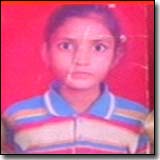Water: Every home has its own water tank, many homes have their own water pumps. Municipal water is supplied for one or two hours per day in most Indian cities. The water is frequently contaminated, dirty, mixed with sewerage, coloured and heavily laden with chemicals. Almost every middle class home in the big cities has installed its own water purification system.
Electricity: There is no city or region in India where a stable and reliable supply of electricity is guaranteed. Every middle class home these days has an electrical inverter or a generator to be used when power supply is off. Every major appliance needs a voltage stabilizer because of huge voltage fluctuations at times. Politically backed illegal slums and colonies steal power in broad daylight from the power cables.
Air: Indian metros are amongst the worst polluted cities in the world. Unregulated growth of vehicles and rampant adulteration in petrol and diesel is playing havoc with the public health.
Health: Government facilities have almost broken down. There is disease, infection, fungus in dialysis and IV fluids, HIV-infected blood for sale, fake and overpriced medicines, corrupt doctors and surgeons, all have contributed to a fear in the general public of getting sick. Most hospitals in Noida, the place where I live, are notorious for taking out and selling organs of poor patients who come to get operated upon for routine problems.
Food: Even the basic food items such as milk, flour, vegetables, meat, soft drinks etc. all are so polluted that you won't be able to have them if you know how they are being produced. Milk is full of artificial chemicals, pus, hormones and eroding bone calcium of cattle; flour, pulses, spices are frequently seen infested with worms and coloured with artificial chemicals; vegetables and fruit are ripened in mixtures of borax and other chemicals; soft drinks have been repeatedly shown to contain pesticides and "foreign bodies".
Security and Civic services: Surely one must be joking. I have never, ever, seen a policeman patrol a residents' colony. There is absolutely no way, unless one is extremely well connected or knowledgeable, that one can get one's grievance redressed if wronged by an individual or a corporation. Almost all the public servants, especially the police, are busy serving the needs of the VIPs, the ministers and the rich. Every rich home has its own security guard(s). The rich and the influential are carrying loaded guns in their pockets, with an army of taxpayer-funded guards in their tow.
To see the real extent of how bad things have become, read the following:
"Holding up his six-year-old daughter’s picture high in his hand, Sunil Biswas sobbed quietly. He wanted all photo journalists and TV crews to capture the child’s face, hoping against hope she might still be alive and someone, somewhere might identify her.

Ever since Pushpa disappeared in March, Sunil has repeatedly braved the poor man’s fear of the police station.
“I have been to the police station at least 20 times, although I was scared,” he managed in Bengali before launching into a volley of curses aimed at himself for having left Calcutta for Delhi a year ago.
There was a crowd of parents today before the Noida house where the police have found the skeletal remains of at least 20 children in a gutter.
Sunil’s friend Subhrojit Haldar — his daughter Deepali, too, is missing – spoke of the recent dharna outside the Sector 30 police station by residents of Nithari village, the home of most of the missing children.
“We appealed to the police so many times. Children were disappearing every second day, but the police refused to even put up a check-post outside the village entrance,” said Subhrojit, a labourer.
A month ago, after the kidnapping of Adobe India CEO Naresh Gupta’s son Anant, Noida police had set up a check-post outside the home and another at the gate of Sector 15 A where the Guptas lived.
“How come that for us they could not provide any security guards?” Subhrojit asked.
“They had alerted the whole country for one child; here so many are missing and no one cares,” Sunil sobbed.
A tailor with a cotton garments’ factory, Sunil said he used to sew clothes for his daughter.
“We were poor and that was all I could give her — made of scraps of cloth left over at the factory. And she loved them.”
Standing across the road from the Noida house where police officers were totting up the number of skeletons, he broke down.
“It is so ridiculous of me to have any hope left now. She is probably there, with the rest,” he said, pointing at the general direction of the house, his eyes pressed against his sleeves.
Suddenly, he was looking up and running his eyes over the scrambling photo journalists and TV camera crews. He tugged at his friend’s shirt, excited.
A few minutes later, he was holding up his daughter’s photograph as tears ran down his cheeks.
“If not the police, maybe someone who sees her can help me. If she is alive,” he explained to this correspondent. “I will keep searching till I know for sure she is dead. My search will go on.” — Agencies"
